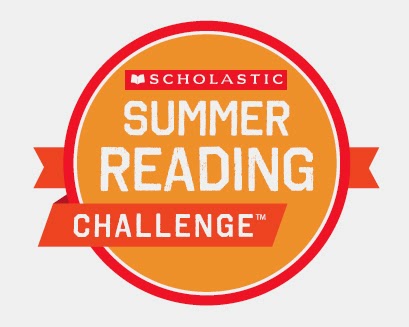Sun, Fun, and the Local Library: The Importance of Summer Reading Programs
Allyson Floridia ‘16 / Emertainment Monthly Staff Writer
As summer vacation begins, many students are throwing on bathing suits and hitting the beach. There are, however, some students who will be hitting the books in addition to the sand. Many people would probably ask, why participate in a summer reading program? Why read when there is so much excitement to be found outdoors, especially when students probably already have summer school work to complete? Summer reading programs—and reading in general, though—are extremely important.
The programs were first introduced by the American Library Association (ALA) in the 1980s. First intended for school children, the programs quickly expanded to include adult-specific courses. The intent behind their creation was to draw in students reluctant to read, encourage reading to become a habit that followed children into adulthood, improve language and reading skills, and promote interest in libraries and books. They have since then provided a positive, educational, and fun experience to students all around the country. Any negatives students may see, like it taking up their time or being boring, are far outweighed by all of the positives.
Books are pages upon pages of words; words that transport readers into a whole new world, one where they can let their imaginations have free reign. In this way, books open the gate to creativity. Creativity, in turn, inspires innovation. What someone imagines as they read a novel can be brought to life in the real world. Decorations, accessories, and clothes are just a few of these things. Participating in summer reading programs provides an outlet for this creativity. They often involve guided discussion or prompts for students to think critically about what they’re reading. Summer reading programs may even inspire future school essays.
Reading can also create friendships. People can become friends over a shared like or dislike of a book. They are able to enthuse over a character, cry together over a loss, and rejoice in any great achievement. In this way, books are a way to form lasting relationships, especially for people who may have trouble connecting to others. Look at the Harry Potter series, for example. The book series, which turned into an extremely successful movie franchise, founded a worldwide fandom. Summer reading programs often have meetings and events where kids can meet others and socialize over their favorite books. Here, they can munch on snacks and chat about their beloved characters.
Aside from being a mode through which to communicate, books are another place from which to learn. Sometimes students can become so invested in a book, in the story, and its characters, that they forget that they’re reading. They forget that when they read they’re improving their language and comprehension skills. It has been theorized that reading expands a student’s vocabulary and stimulates critical thinking by exposing them to complex plots, metaphors, and character development. It is said that reading may help memory retention, increase focus, and improve writing skills, as well. If a person is reading “good” literature, then they will adapt their writing where they see the novel’s strengths.
While some may argue that reading takes up a great deal of time that could be better spent physically exercising outside, it must be said that mental stimulation is just as important. Summer reading programs don’t intend to monopolize a student’s summer. For some of these programs, there may not be a set structure. One may suggest a student read x number of books over the course of the summer vacation. Another may suggest that a student read only a book every month. A person doesn’t need to finish the novel in a day. Even just reading for an hour or two a day or every other day would be beneficial. Each library has a different summer reading program and students simply have to choose which one best fits them.
For children in elementary and middle school, Scholastic is hosting a summer reading challenge. It is a free, online program that asks students to log the number of minutes they read every time they picked up a book. The elementary school that reads the most will win a visit from New York Times Bestseller Michael Northrop, author of the TombQuest series, while the middle school that reads the most will win a visit from Varian Johnson, who is the author of Saving Maddie and My Life as a Rhombus. This summer reading challenge doesn’t need to be relegated to only elementary and middle school children. Anyone can challenge themselves to read the most that they can.

Entering 12th graders, college students, and adults could participate in Boston University’s Speed Reading Program. This is a more intensive program where participants meet once a week for five weeks. Here, they will gain skillsets in reading comprehension, concentration, recall, and note taking. While this is a program available only in the northeast and has a $300 tuition fee, it is perfect for those who are deeply interested in literature and improving their reading comprehension.
However, participating in a summer reading program isn’t the only option. Reading for pleasure whenever someone gets a chance is a great alternative. It doesn’t have to be a chore or another assignment. It can be entertaining and a great conversation starter with new or old friends. Summer reading programs are just one extra motivator. Above all though, the important thing is to simply read.
I agree that summer reading programs are truly important, I felt their efficiency myself. After this experience I stopped using college paper writing company and started writing my papers without anyone`s help.